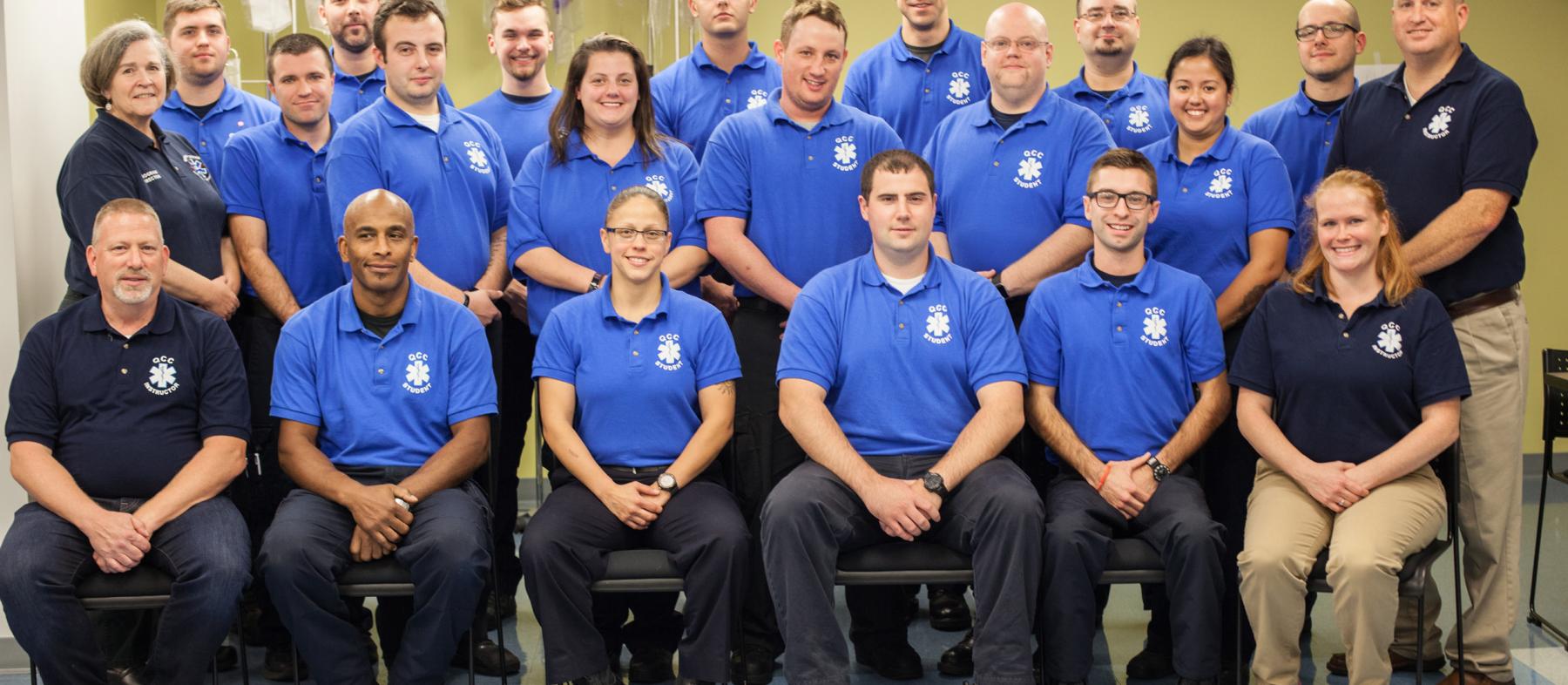Program Goals:
This program prepares the student, upon successful completion of the Massachusetts EMT-Basic exam, to practice at the EMT-Basic level; it provides supervised classroom and laboratory training. Students in this program will be required to complete approximately 160 hours of intensive lecture and laboratory materials. Upon successful completion of the didactic and lab components of this program, the student will be eligible to take the certification examination for EMT-Basic of the Massachusetts Office of Emergency Medical Services.
Student Learning Outcomes:
Upon completion of the program, graduates will be able to:
- List key developments in the history of EMS, the five types of services that provide emergency care, and discuss the role of the National Scope of Practice and the National EMS Education Standards as they relate to the levels of EMS education.
- Understand the body’s topographic anatomy, including the anatomic position and the planes of the body, and the major structures of the respiratory system.
- Explain how pharmacology relates to emergency medical technician clinical practice, and describe the regulatory measures affecting medications administered in the pre-hospital setting.
- Describe how to determine the mechanism of injury or nature of illness at an emergency and the importance of differentiating trauma patients from medical patients; discuss some of the possible hazards that may be present at an emergency scene, ways to recognize them, and the precautions to protect personal safety.
- Define the term trauma and explain its relationship to energy, kinetics, and biomechanics.
- Discuss the importance of the American Heart Association’s five links of the Chain of Survival to a successful code; describe how progressive communities can improve survival of pre-hospital cardiac arrest patients.
- Understand the normal changes that occur in the various body systems during pregnancy and the process of childbirth.
- Summarize the medical equipment, safety equipment, and operations equipment carried on an ambulance; provide examples of some high-risk situations and hazards that may affect the safety of the ambulance and its passengers during both pre-transport and transport.
- Perform CPR (Cardiopulmonary Resuscitation) as instructed in the program.
Admissions Process:
Admissions inquiries should be directed to admissions@qcc.mass.edu. Prospective students may apply to the program of their choice by following the enrollment steps at www.QCC.edu/enrollment-steps.
Program Admissions Requirements:
Students should note that some first semester courses carry minimum prerequisites. Refer to the program grid.
- High School Diploma or GED/HiSET.
CORI, SORI, Finger Printing & Drug Testing:
Criminal Offender Record Information (CORI) and Sex Offender Registry Information (SORI) checks are required in the program, either annually or every semester. An issue with CORI/SORI could result in dismissal from the program.
Additional Cost:
See the Program Fees page.
- Didactic and lab uniforms: approximately $25.00; NREMT computerized exam: $160.00; NREMT psychomotor exam: $175.00; MA certification: $150.00.
- CPR Certification Card: $10.00.
- Personal stethoscope suggested: approximately $45.00.
Technical Performance Standards:
See the Technical Performance Standards page. (Note: Not all programs have technical performance standards).
- The QCC Emergency Medical Services/Paramedicine program is deeply committed to diversity and fostering an inclusive environment that represents the diverse population of healthcare professionals. We value the uniqueness and potential of every learner and strive to create a culture of respect and equality, welcoming all students, including individuals with disabilities. We encourage students with disabilities to disclose their needs and seek accommodations to fully engage in our program. All disability-related conversations and requests are handled through a confidential process to protect the privacy of our students. After reviewing the Technical Performance Standards, students who have questions about accommodations should contact QCC Student Accessibility Services as soon as possible. Given the complexities of clinical-based programs, additional time may be needed to effectively implement accommodations.
- For more information, contact QCC Student Accessibility Services:
Credit for Prior Learning:
Credit for Prior Learning (CPL) allows students to use skills they already have towards a college degree or certificate. Work, life, volunteer and military experience may be translated into credit, allowing students to take fewer classes and earn their degree faster. CPL eliminates redundancies for students who have already earned credentials or mastered skills required for their program of study. Email experience@qcc.mass.edu for more information and eligibility.
Career Outlook:
Please consult the Massachusetts Career Information System at https://masscis.intocareers.org/ or the Occupational Outlook Handbook at www.bls.gov/ooh/ for specific occupational information. The CIP code for this program is 51.0904.
Transfer Articulations & Opportunities:
Prospective students may learn more about transfer articulation agreements at www.QCC.edu/agreements. More information regarding transfer opportunities is available at www.QCC.edu/transfer.
Additional Information:
- This is a great opportunity for students to gain entry-level employment in the healthcare field prior to matriculating into a selective program.

